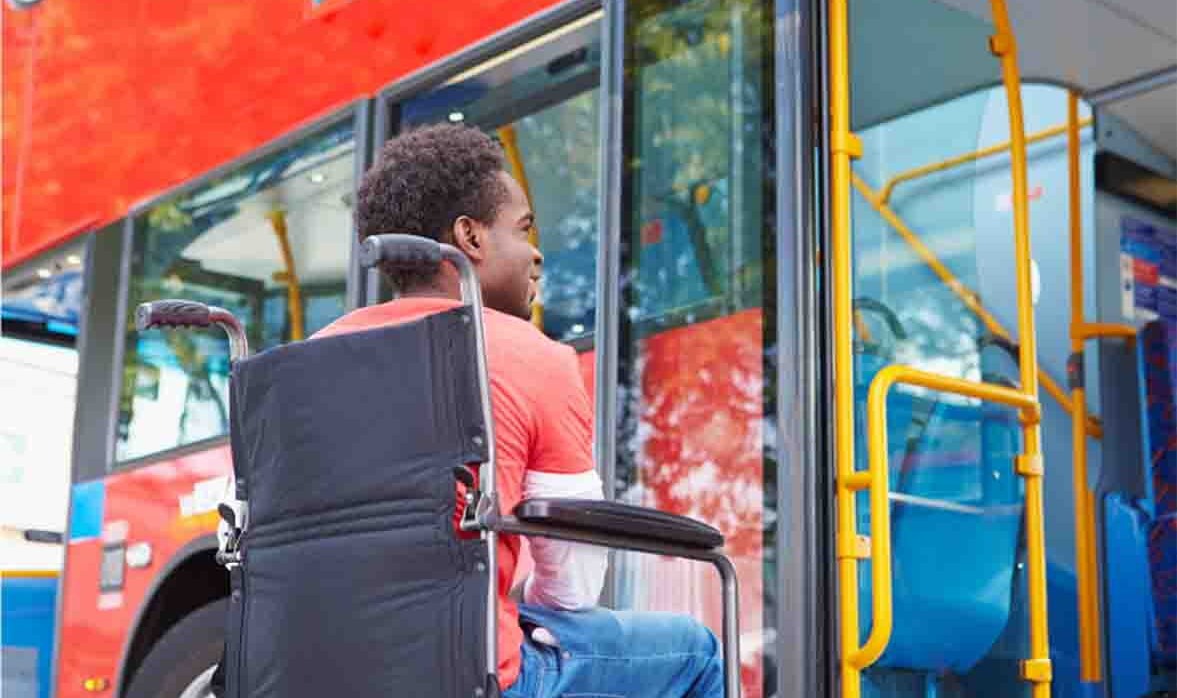The Covid-19 pandemic has undoubtedly affected the way disabled people travel.
Released today, our new research report looks into how experiences of travel and transport have changed for disabled people since the Covid-19 pandemic began and what this might mean for access to transportation in the future.
The study, carried out by Britainthinks found that many disabled people experience continued uncertainty around risks to their health and wellbeing when leaving their homes, as a result of the pandemic.
It has compounded pre-existing barriers to using both public and private modes of transport, including:
- inaccessible infrastructure
- attitudes and behaviours of non-disabled passengers
- concerns about the increased cost of living.
Key findings from the report included:
- Disabled people have been disproportionately impacted by the pandemic. 65% of disabled people agreed they were concerned about risk of infection, as compared to 49% of non-disabled people.
- Additionally, 40% of disabled people agreed their health had deteriorated due to Covid-19, as compared to 15% of non-disabled people.
- 38% of disabled people surveyed felt that they had to undertake significant planning to make a journey during the pandemic, compared to 25% of non-disabled people.
- 1 in 3 (32%) disabled people surveyed said they found the attitudes and behaviours of other passengers or motorists a challenge when travelling during the pandemic.
- During the pandemic, those who had access to a suitable private vehicle overwhelmingly chose to travel this way, due to risk of infection when interacting with others on public transport. However, the cost of living crisis threatens to disrupt this ‘new normal’ of travel for participants, as some are finding the rising cost of fuel is making travelling by car unsustainable.
In addition to their experiences of travel, the research asked disabled people what they would like to see more of to improve their travel journeys.
The suggested solutions from participants included:
- online video accessibility tours
- alerting staff ahead of time
- no inaccessible public transport
- cheap powered equipment, including wheelchairs and scooters
- an intermediary taxi booking service.
Our newly-launched grant programmes will help to give disabled travellers more independence - the Active Travel Grant Programme will help charities and organisations to improve and expand access to quality and affordable active travel equipment and journeys, and the Travelling with Confidence Grant Programme will help charities and travel providers to make an immediate impact for disabled people through travel training schemes.
The Evidence Centre for Inclusive Transport is expected to launch in early 2023.

